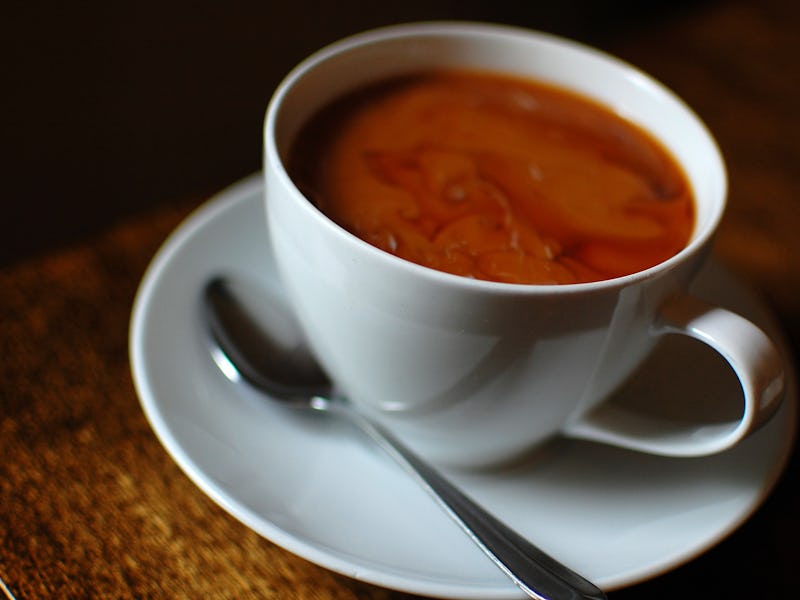Why Are Gourmet Coffee Roasters Going Caffeine-Free?
Decaf lovers make up more than 10 percent of coffee drinkers, but they're missing out on caffeine's health benefits.

The opening of an all-decaf coffee shop in New York last week sparked outrage among the city’s caffeine fiends. The Swiss Water Coffee Studio, a pop-up café, promises to show guests the “Art of Coffee Without Caffeine.” While the shop has drummed up some interest among the caffeine-free set, local coffee purists are recoiling in horror.
The pop-up shop, located in the middle of New York’s trendy Soho neighborhood, was fairly empty on Monday morning. Most of the guests milling about had strolled in, enticed by the promise of free food. A few were interested in finding out what gourmet caffeine-free coffee tasted like. None were seeking an energy boost.
In line for a free decaf espresso, one customer put it bluntly: “I wouldn’t tell you I was going to make this a habit.” Another shopper, tasting a cup of caffeine-free drip coffee, was more open-minded. “We wanted to see the difference in taste,” she said. “I think decaffeinated is — I don’t know, is it healthier?”
The science actually suggests the opposite. While aficionados are clearly at odds over what truly makes a cup of joe, researchers are lot less divided about the health benefits of a morning coffee fix. Evidence for caffeine’s role in supporting brain function is well-documented. And this year, a team of Italian scientists found that coffee drinkers are less likely to develop brain impairments that lead to debilitating diseases such as Alzheimer’s and dementia — so long as they drank in moderation.
The brain isn’t the only part of the body that benefits from a morning jolt. Caffeine intake has been shown to improve sexual function: Earlier this year, a study published in PlOS One reported that men who drink about two to three cups of coffee — or the caffeine equivalent — are less likely to experience erectile disfunction. Other researchers have uncovered coffee’s role in cancer treatment. In a study of almost 1,000 cancer patients published earlier this year in The Journal of Clinical Oncology, scientists found evidence that patients who regularly consumed four or more cups of caffeinated coffee a day were 42 percent less likely to suffer a relapse.
While the Swiss Water decaffeination process is meant to be less harmful than chemical methods, the team behind Swiss Water isn’t driven by health reasons. As coffee director Mike Strumpf told Inverse, the company is simply trying to cater to the 10 to 12 percent of coffee drinkers who regularly drink decaf. “Going out to a coffee shop as something to do is popular. But if you go out to five coffee shops a day,” he says, trailing off. “I can’t drink five coffees.”
The hope is that Swiss Water, with its highbrow approach to decaffeination, will allow coffee lovers to have the “social experience of coffee” without any of the jitters or stigma. “It’s no longer for older people or people with heart problems, Strumpf says. “It’s for everybody.”
Whether coffee purists will ever embrace that sentiment remains to be seen. As with everything intake-related, moderation is key. Being overcaffeinated, after all, is not fun for anybody. But as Gothamist put it, anything that makes “your colleagues moderately tolerable at 9 a.m.” probably doesn’t need an overhaul.